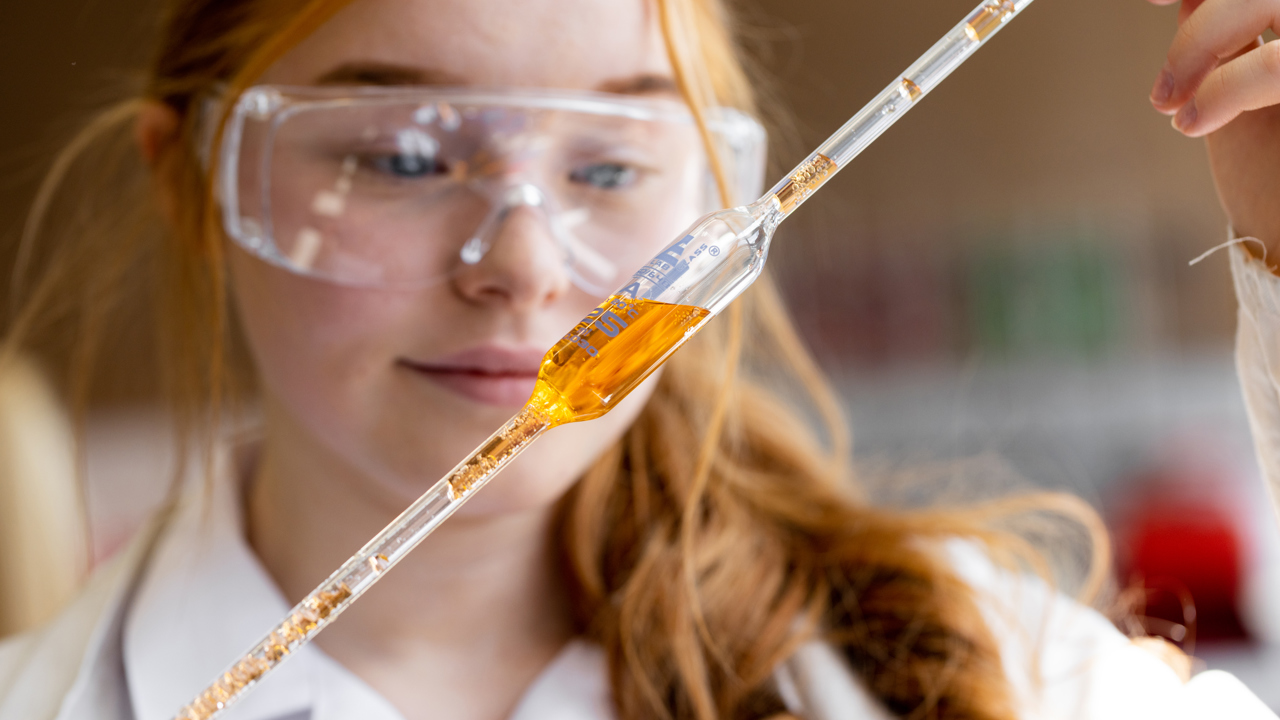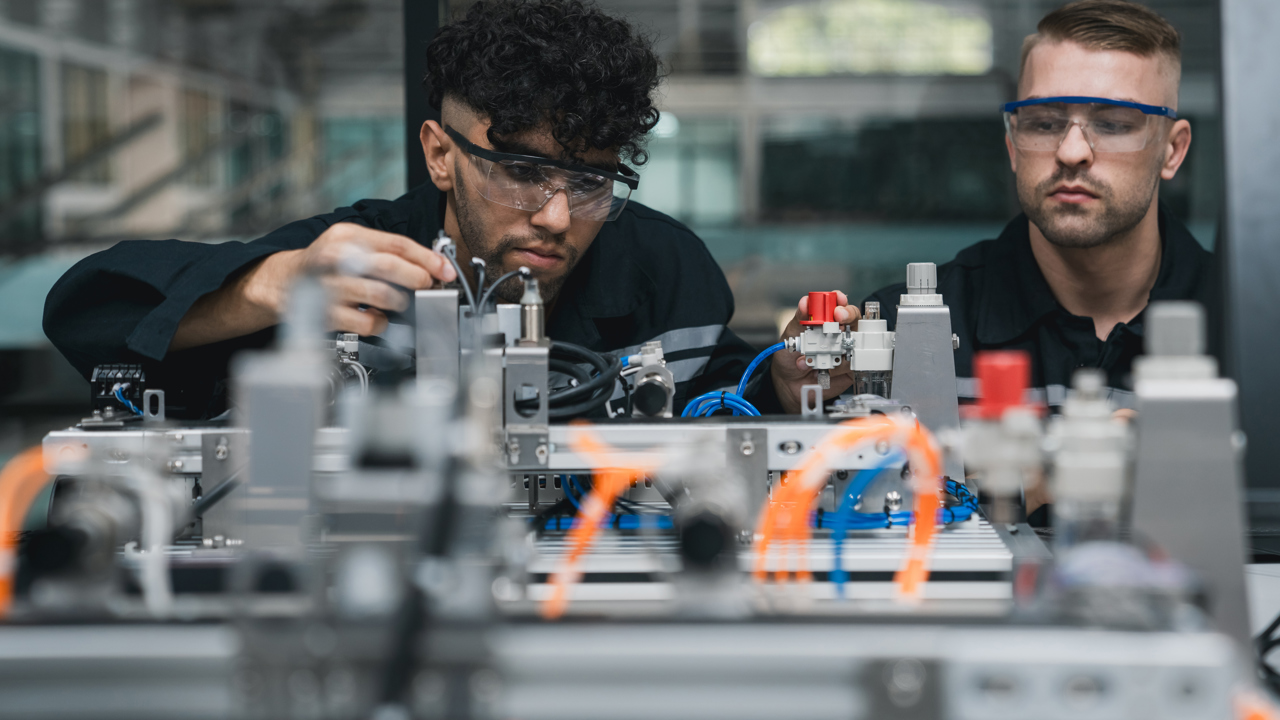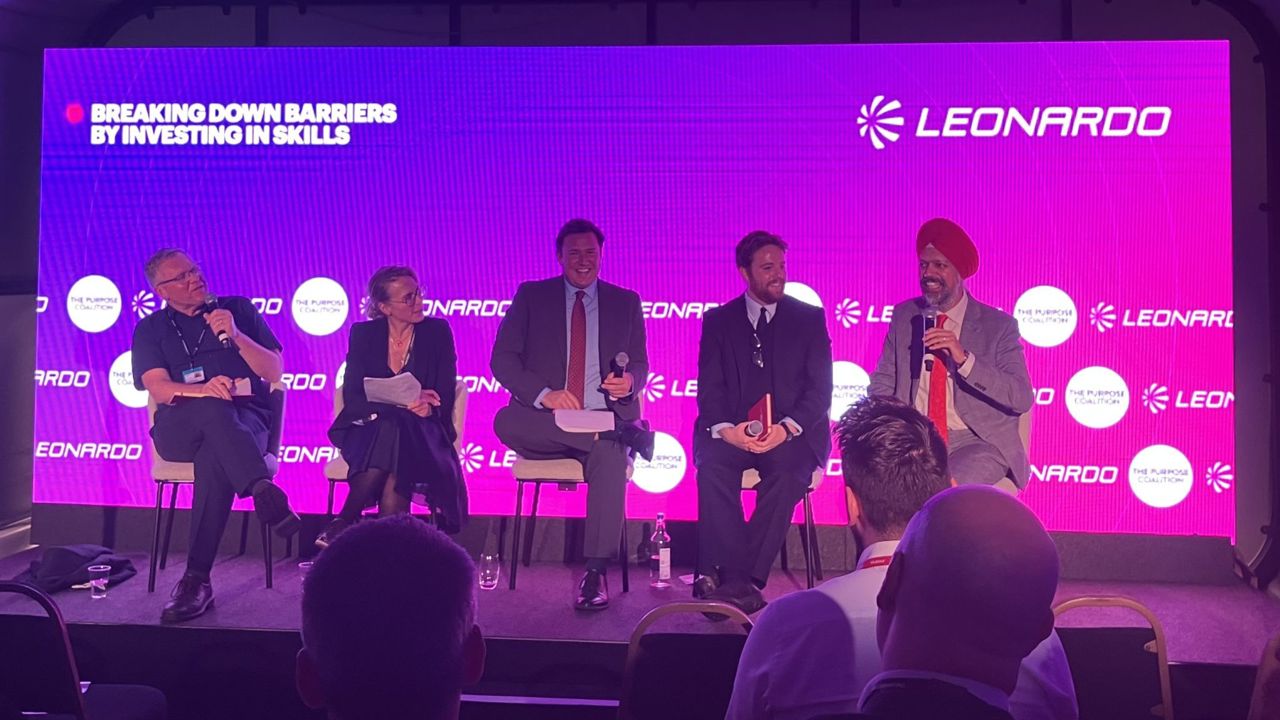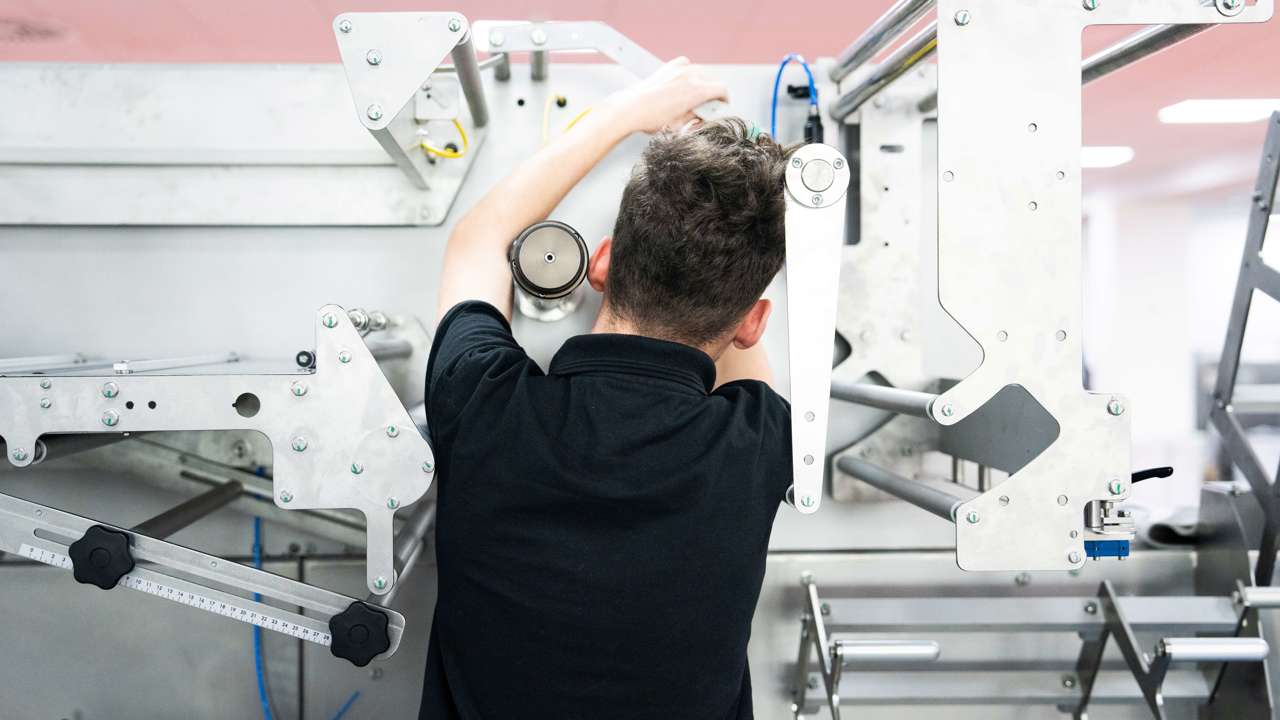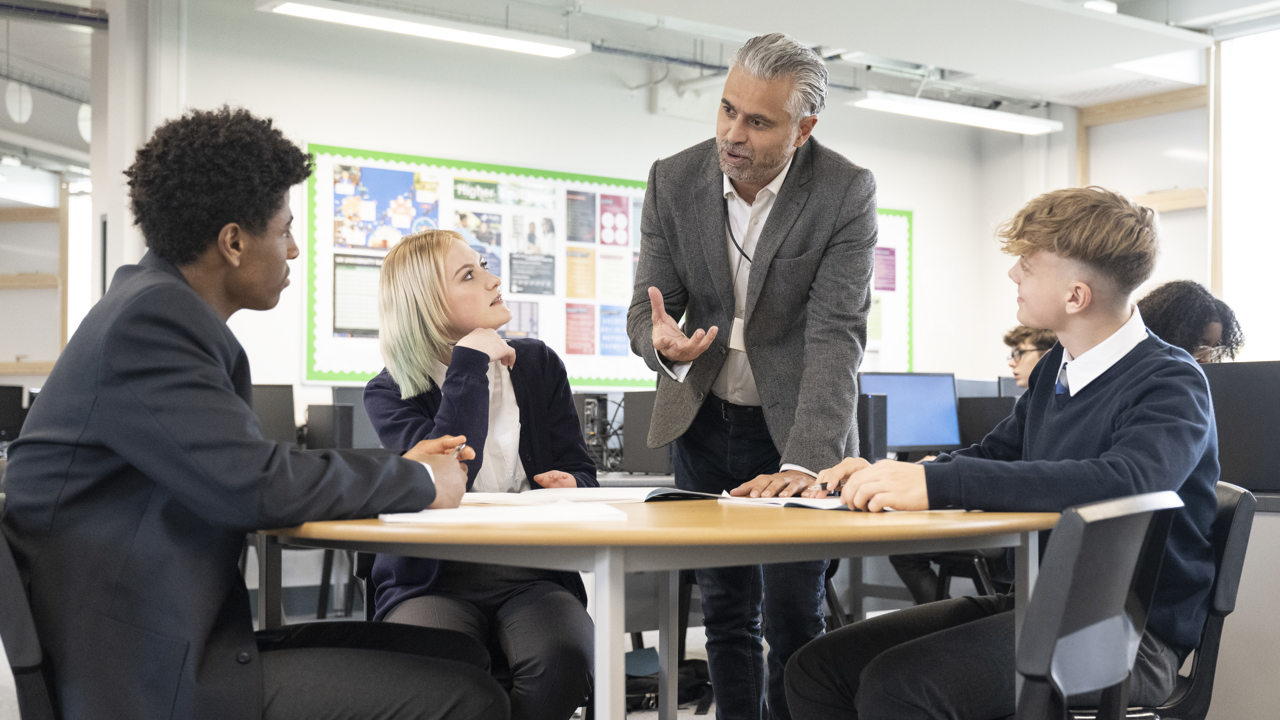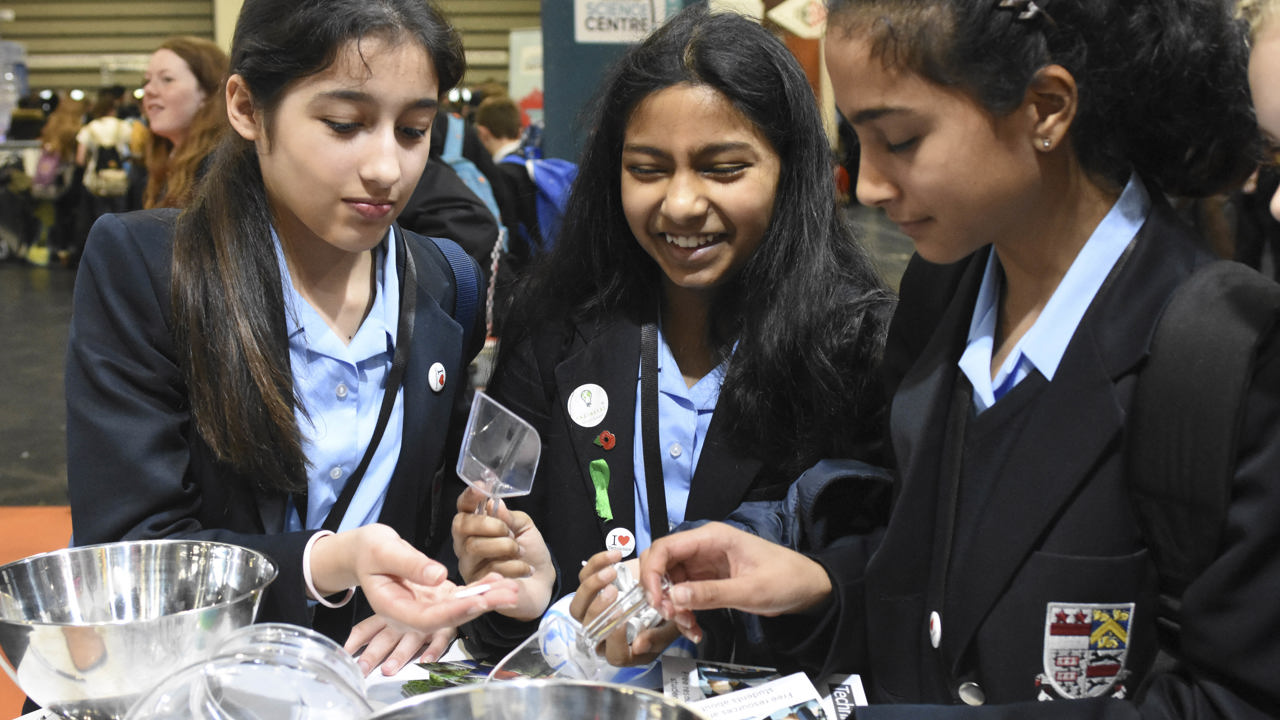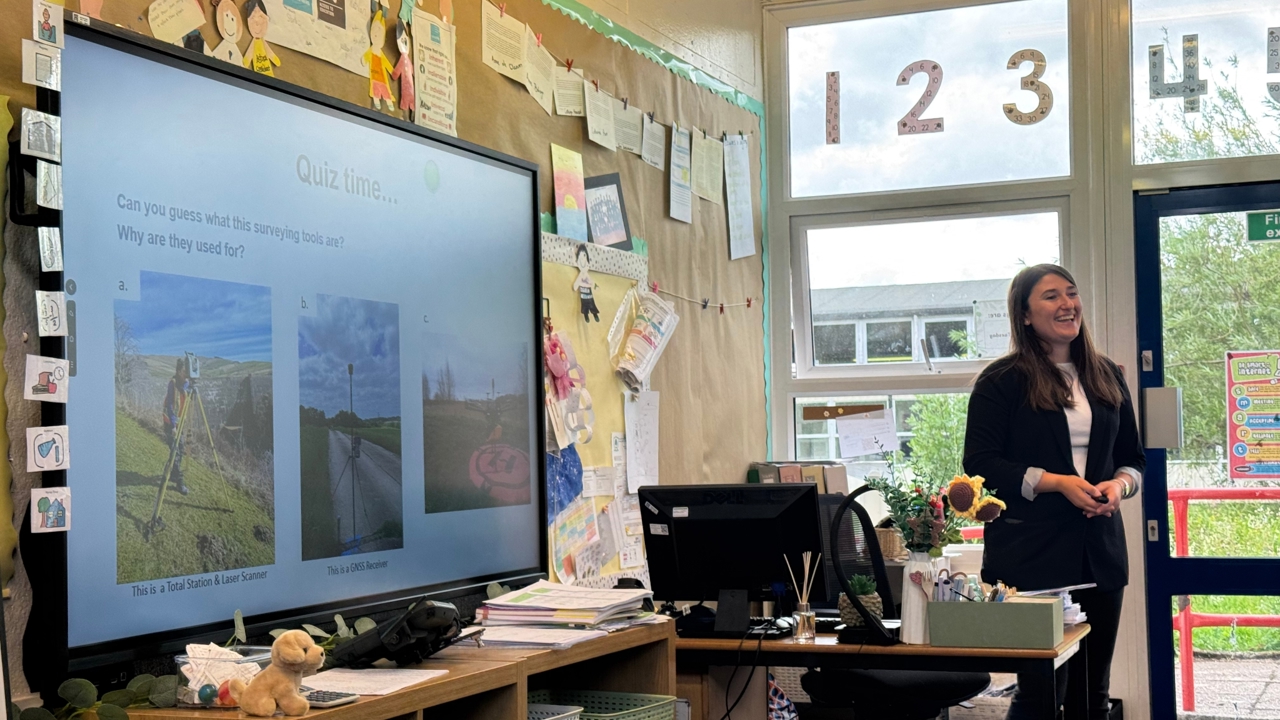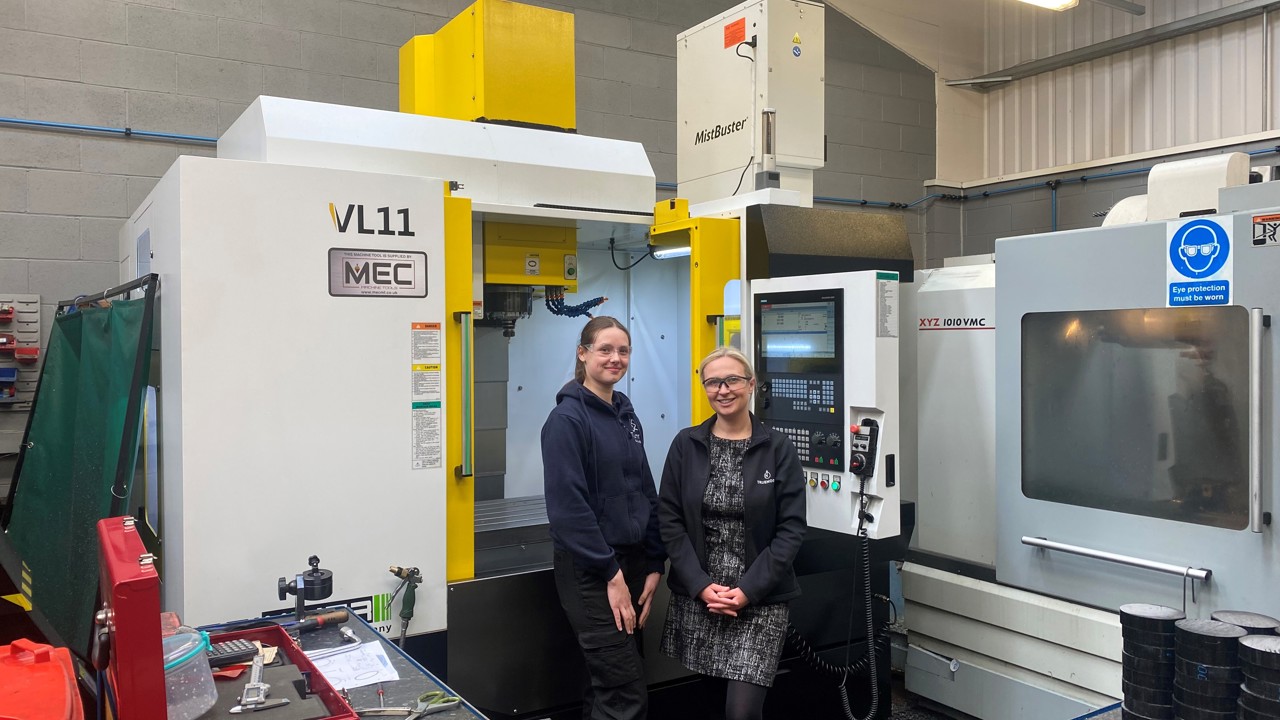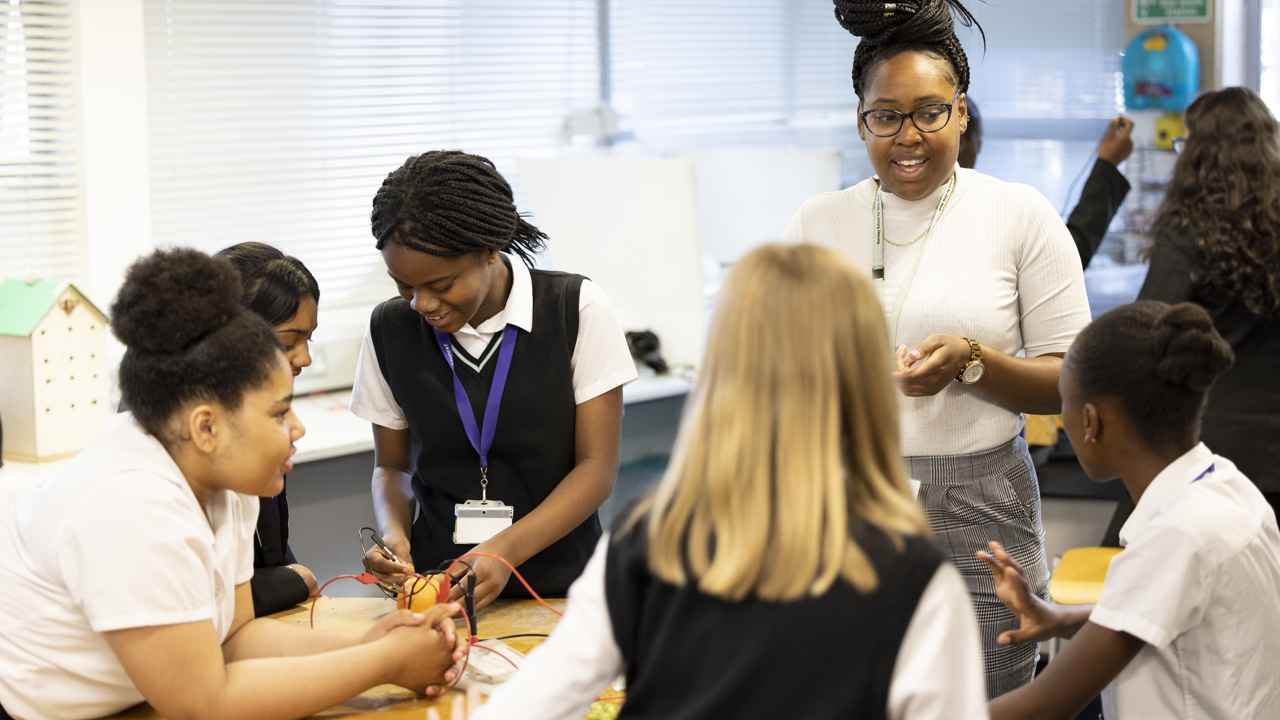Become a STEM Ambassador to inspire the future workforce
Why not empower tomorrow's workforce by becoming a STEM Ambassador? ‘Tackling Climate Change’ is a 40 or 55-minute classroom-based engagement designed by EngineeringUK’s Head of Environmental Sustainability Mike Hardisty, to be delivered by Climate Ambassadors or STEM Ambassadors.

Naval architect Aaran Prothero and geoscientist Sean McQuaid talk about their experience of piloting EngineeringUK’s Tackling Climate Change resources and why they recommend more people to become STEM Climate Ambassadors.
Q: Tell us about yourselves, your area of engineering and your experience of delivering ‘Tackling Climate Change’
Arran: I'm a 20-something engineer at DNV, based in Aberdeen. I've been with DNV 3 years. I'm a naval architect, so I deal with anything that floats.
I've been to a couple of schools now with this programme, and the kids have absolutely loved it. They've loved the interaction. They love seeing somebody new, somebody a bit different than their teachers. I think it's gone down a real storm.
Sean: I'm a 60-something scientist, so at the other end of my career. I've done about 40 years as a geoscientist, doing subsurface imaging and seismic exploration in the oil and gas industry, but recently helped start the process of transitioning our company to include carbon capture and storage, greenhouse gas auditing, geothermal other transition related services.
I am a co-founder of an organisation called TIDE Community which stands for ‘Transition through Inclusion and Diversity for Equity’ and what we're trying to do is to raise funds for underprivileged young people to go to university to study degrees in STEM subjects related to achieving net zero. We are lobbying government and institutes and engineering communities.
Q: How did you both get involved in the ‘Tackling Climate Change’ sessions?
Arran: Last autumn, DNV had a drive to get employees signed up to the STEM Ambassador programme. I signed up and volunteered. EngineeringUK put up an advert and I thought, yeah, this is really for me. I really loved it and came back for more.
Sean: TIDE Community is a member of the NCEAP – the National Climate Education Action Plan run by the University of Reading – and through this group, met EngineeringUK’s Head of Environmental Sustainability, Mike Hardisty. We share a similar philosophy about how we should be tackling climate change.
Q: Tell us about your experience of delivering ‘Tackling Climate Change’
Arran: The first session was to 12 to 14 year old students and was the first period of the day, so everyone was ‘who's this person and what are they doing?’ By the end of the session, you could see they were awake to things a little bit more and that was nice to see.
Sean: I came across tremendous enthusiasm in the class room for what we were delivering. I actually preferred teaching challenging classes because they will be honest and say things like, ‘why are we doing this?’, ‘what is the point?’ which gives you the trigger to be able to go in and talk about it.
Q: What challenges did you come up against, if any?
Arran: Making sure you're clear your words are right, it's a big thing that STEM Ambassadors are taught from the get-go is don't use long words.
Sean: One thing that I would probably say is that no 2 classes were the same. They presented very different challenges. Because climate change is on such a slow burn, it is challenging to relate it to their short-term horizons but I would ask them ‘in 2050, which is when we're supposed to get to net zero, how old are you going to be? What sort of job are you going to have?’ And then they start to work out that actually they'll be at the height of their careers right when we need to achieve net zero.
There were other surprises for them. They would say that all the electricity is generated with coal and then they'd be surprised when they find out its gas. There are a couple of things which almost every class got wrong in terms of the questionnaire, those are good ones from which to springboard conversations.
Q: Did you see a difference in terms of engagement from boys and girls?
Sean: I did. It's something that I feel very strongly about. I run the Curiosity Club at primary school with Year 5 and Year 6 and the whole point is to provide scientific resilience so when the girls go into Year 7 and 8 they actually can say, ‘hey, I'm a good scientist don’t exclude me’. I did find that there were some girls who lacked confidence and wouldn't talk. That concerned me. I try to have a little chat with them and see if I can get them engaged. It is a systemic problem, and we need to address it very early, very early on. Industry should do more outreach in primary schools. We want good, highly confident girls going to secondary school ready to hit the ground running and feeling that they have every right to be in that laboratory. A lot more outreach by large organisations in primary school would make a big difference.
Q: What's the stance on supporting you and your colleagues on volunteering and particularly in STEM volunteering?
Arran: The reason I got involved in the first place was because my company was putting on a drive to get people involved. There’s a really big push we have in DNV to support our communities. We're a really diverse company. That's something I think we pride ourselves on. When I was presenting in schools, I took a colleague along to pretty much every session, somebody with a different background to me, I mean I'm a white male in engineering, I'm not really going to inspire a lot of diversity doing that, so taking people along with different life stories, different backgrounds, if English isn't their first language, that sort of thing, is important to show that anyone can be an engineer. And obviously there are different types of engineers out there too. It's not just naval architects like myself. All walks of life need to be involved in engineering, so the company promotes that really well.
Q: Looking back, what got you both interested in engineering and what do you think will help inspire tomorrow’s engineers?
Sean: I was about 7 years of age, and I remember wanted to be in the science club, and I went across to the teacher and I said, ‘how does this magnet work?’ I really wanted to know but nobody could tell me. I then spent the rest of my life trying to find out how a magnet works. So that got me on the path for science.
To engender curiosity is important. Einstein said I'm not a particularly clever person, but I'm a very, very curious person. And that's the key - curiosity. Encourage them to keep that curiosity all through their life. And that requires them to be observational. Scientists look around and say, ‘hey, that's a bit weird’.
Arran: I was kind of the opposite, I guess. I grew up in Aberdeen from primary school all the way through secondary school and there's a lot of engineers in general around. If you go to somebody's house, a friend's house, and you ask ‘what do you do’, it's probably going to be some type of engineering. But the thing that really pushed me into it is right in the city centre, you can see the harbour. You can see all the boats, all the things being lifted on, taking off, people coming on, people coming off, all the interesting things you can see on the back of ships, what goes in that ship, and that's why I looked at the career in naval architecture.
But yeah, I was just intrigued by, like Sean said, the curiosity of what's happening there?, why do they need these massive ships? What are they doing with them? Where are they going? Because you never know where they go. You know, they come to Aberdeen, but where do they go after that?
Q: Would you recommend being a Climate Ambassador or STEM Ambassador – and what tips do you have for those who may be interested?
Sean: I would say doing a decent deep dive into understanding climate change yourself is important because what you don't want to be doing is advocating something you don't really believe in. Once you do that and if you come to the question what happens if we don't do anything about it, then it becomes an obvious imperative to educate and to inspire young people to help them to help themselves. That will drive you.
Arran: You don't have to be absolute tip top on the material. You just need to know the material you're presenting and the background behind it. I think that's the key thing. I've done some virtual ones just 2-3 minutes in a call with a primary school class beforehand, and that really gets you and you can see their faces absolutely light up when you start speaking about what you do.
But absolutely go for it because we need more people to do it.
If you're a STEM professional interested to help empower tomorrow's generation, you can sign up on the STEM Learning website.
We want good, highly confident girls going to secondary school ready to hit the ground running and feeling that they have every right to be in that laboratory. A lot more outreach by large organisations in primary school would make a big difference.
— Geoscientist and STEM ambassador, Sean McQuaid

